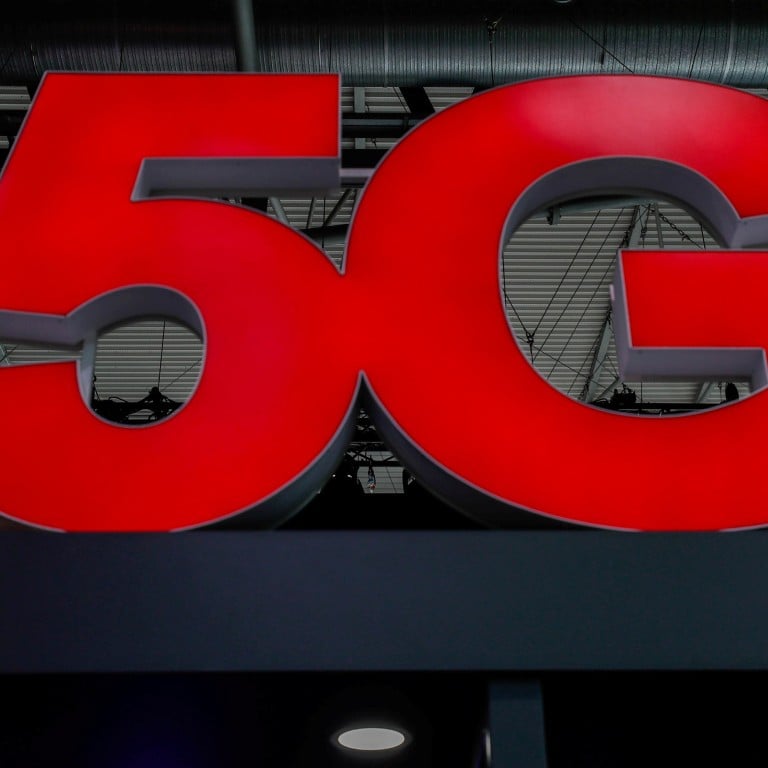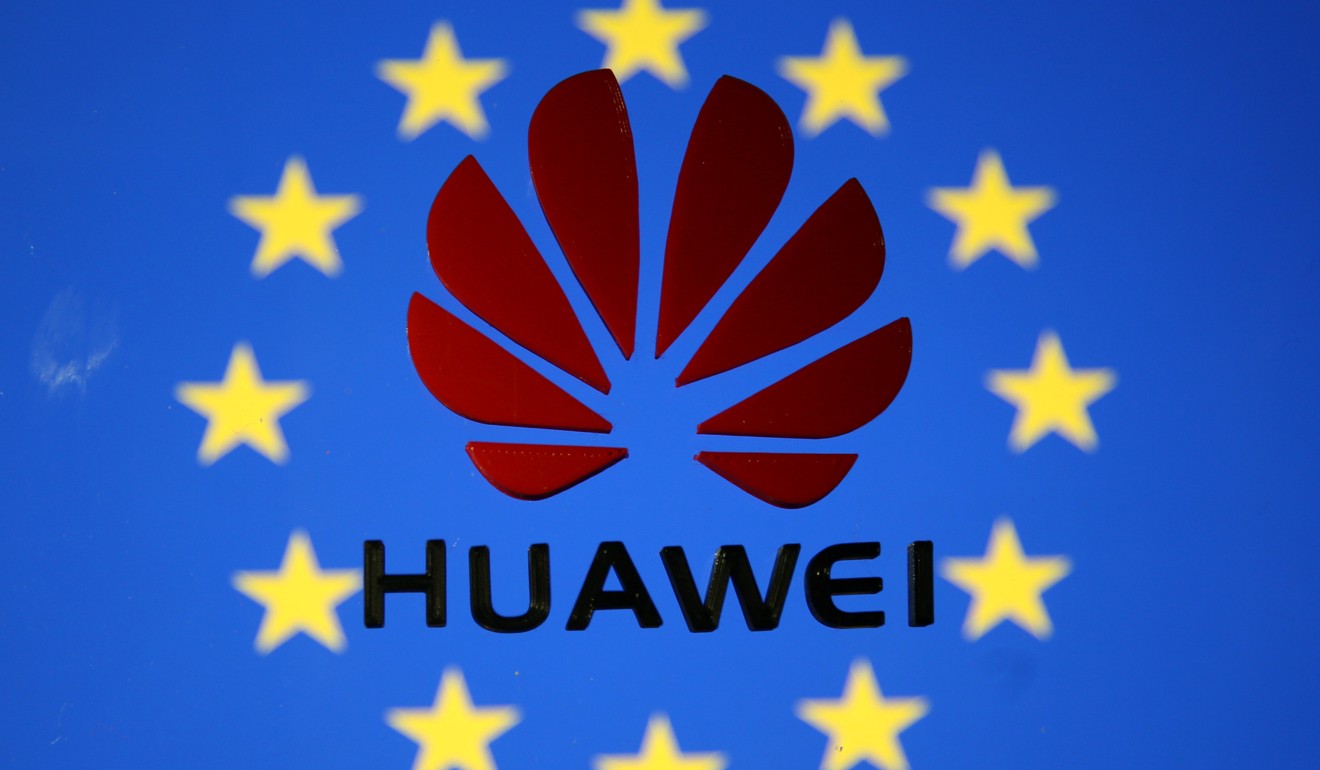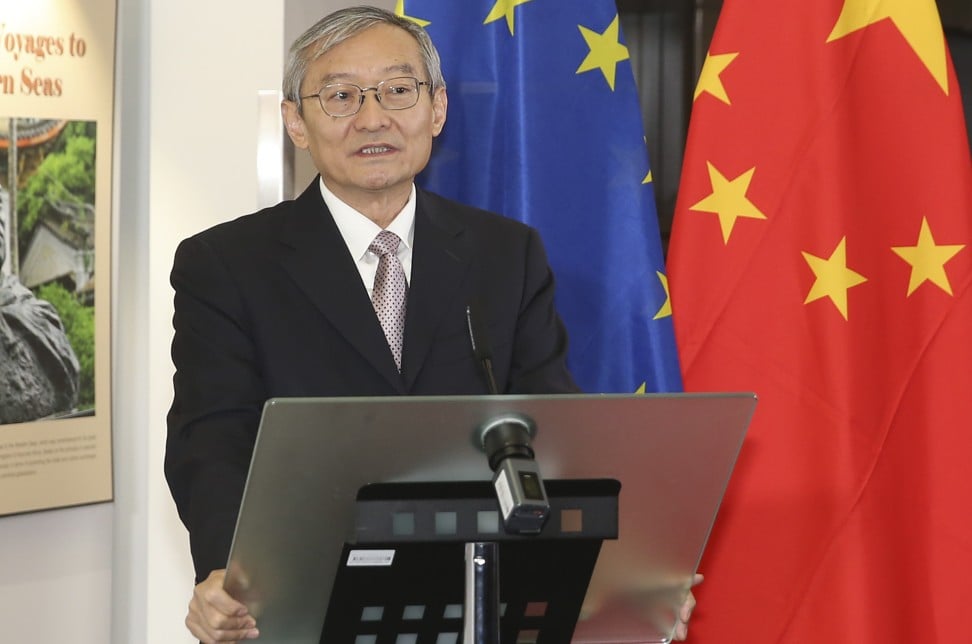
EU ban on Chinese technology in 5G revolution would hit trade, investment and cooperation, analysts say
- Beijing hints at retaliation if Europe takes punitive action against Huawei
- Analyst says development of 5G has become geopolitical football
Trade, investment and scientific cooperation between Europe and China are at risk of taking a “big step back” as the European Union considers banning Chinese telecom giant Huawei, analysts said.
Beijing has hinted at retaliation should the European Union go ahead with the ban. The 28-member bloc is planning ways to ban Chinese firms from work to develop its 5G networks, and that might spell trouble for joint efforts to test 5G in China and Europe.
Last week, EU officials said they were in the early stages of making plans to strengthen procurement rules, or change the legal definition of critical infrastructure.
Such plans, if enacted, would effectively exclude Chinese telecom providers from development of European high-speed information networks.
“The global economic implications of comprehensive bans on major Chinese tech firms almost go without saying – they would have enormous effects,” said Cui Hongjian, a senior fellow with the China Institute of International Studies. “It would definitely affect trade relations as well.”
We need to talk about Huawei: Europe debates ban on Chinese tech giant
The EU is China’s biggest trading partner, averaging more than €1 billion (US$1.14 billion) per day, while China is the EU’s second-largest after the United States.
Cui said that Beijing might also cancel scientific cooperation, or close doors on future plans, if it felt Europe was targeting China’s technology companies.
Huawei is building a strong presence in European markets, and Chinese telecom firms have been working with their European counterparts on 5G networks for years.

China and the EU signed an agreement on 5G cooperation in 2015, pledging to conduct joint research and promote standardisation. The agreement was signed as a part of a public-private partnership launched by the EU, with the bloc pledging €700 million in government funding by 2020, and a further €3 billion to be raised by industry.
Huawei said it was playing a “major role” in cooperation, according to the company website, and was working with European telecom companies such as Nokia and Ericsson, as well as European research institutions, to explore 5G.
This year, the EU began a two-year programme with China to develop 5G under the 2015 agreement, and is prepared to spend millions of euros.
Why 5G, a battleground for US and China, is also a military conflict
In November, the EU and China began a 20-month collaboration under the 5G-Drive project for joint research and trials agreed between the bloc and the China Mobile Research Institute.
The Chinese side of the project is coordinated by China Mobile, where project partners include Huawei. The project will focus on sites in Italy, Finland and Britain, and five in China – in Hangzhou, Shanghai, Wuhan, Suzhou and Guangzhou.
Chinese and EU scientific cooperation stretches back more than two decades and includes agriculture, biotechnology, space and human health research.
A co-funding mechanism for scientific cooperation has mobilised more than €500 million from the EU, and 1 billion yuan (US$148 million) from China from 2016 to 2020.
But the momentum for cooperation may be lost if European national security concerns over Chinese companies, especially Huawei, take precedence.
At least five EU governments – France, Germany, Poland, Britain and the Czech Republic – have said they are investigating whether to bar Huawei from 5G infrastructure developments.
One of the concerns cited by European nations is that Chinese law demands private companies and individuals cooperate with national intelligence agencies – meaning Huawei could turn sensitive data over to the Chinese authorities.
Who does the UN think will benefit the most from the US-China trade war?
Tim Rühlig, an analyst of EU-China relations at the Swedish Institute of International Affairs, said rivalry between China and the US had put Europe in an “awkward position” because of its extensive cooperation with both sides.
“Both the US and China perceive the conflict over 5G infrastructure as a matter of geopolitics,” he said.
“China cutting supply chains to Europe in information and communication technology would be a serious problem for the region’s technological development, as they are heavily reliant on China.
“China has leverage, but I am not sure it is willing to utilise it.”

The concern intensified last month when European Commission vice-president Andrus Ansip, who is in charge of digital affairs in the union, said that all Chinese companies were “under suspicion” as possible security risks.
But Zhang Ming, head of the Chinese mission to the EU, said banning Huawei from European 5G projects would risk “serious consequences” for global economic and scientific cooperation.
German telecoms company Deutsche Telecom warned that a ban on Huawei would put European firms behind US and Chinese firms, and set back the release of 5G technology in Europe by at least two years.
China’s EU envoy hits out at ‘slander’ against Huawei
“At this moment, I believe that Europe tends to side with the US. If China wants to prevent Europe from taking this decision, it is well advised in trying to tone things down and not try to blackmail Europe. The most likely result would be the EU‘s complete turn to the US,” Rühlig said.
But Shi Zhiqin, who studies European affairs at the Carnegie-Tsinghua Centre for Global Policy, said the EU as a whole would not ban Chinese tech companies.
“If they do take action, China-EU relations, on the whole, are likely to take big steps back. But Huawei’s market share in Europe, and the existing scale of joint research, make it very difficult to imagine a full ban on Huawei,” Shi said.


